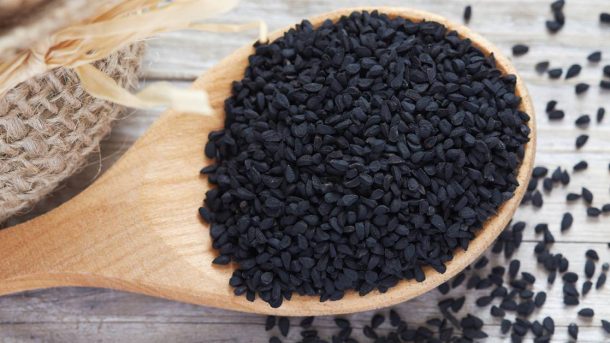Black cumin seeds, hailed for their medicinal properties, are steeped in history, traversing ancient texts and cultural practices with their healing potential. Their mention in religious scriptures like the Bible and the Quran underscores their enduring significance, while figures like Dioscorides in ancient Greek medicine recognized their therapeutic value in addressing various ailments, from migraines to toothaches.
This rich historical tapestry sets the stage for a deeper exploration of the multifaceted benefits of black cumin seeds in modern times.
The contemporary scientific lens has brought into focus the intricate chemical composition of black cumin seeds, revealing a complex interplay of over 100 compounds, including essential fatty acids crucial for health. Research has illuminated their potential in preventing and managing a wide spectrum of diseases, ranging from cancer to diabetes and autoimmune disorders.
Notably, their anti-inflammatory and immunomodulatory effects offer promise in rebalancing immune responses, presenting a potential avenue for intervention in autoimmune conditions, where the immune system attacks the body’s own tissues.
Liver health emerges as a focal point in the discussion of black cumin seeds’ benefits, with studies indicating their ability to promote liver restoration and protect against damage, particularly pertinent for individuals grappling with medication or alcohol-related issues.
Moreover, evidence suggests their role in mitigating the risk of both type 1 and type 2 diabetes, offering a natural approach to glycemic control and metabolic health.
The benefits of black cumin seeds extend far beyond disease management, encompassing a myriad of health-promoting effects. From aiding in weight loss to preventing hair loss and enhancing skin health, these seeds offer a holistic approach to wellness.
Their infection-fighting properties, anti-asthmatic effects, and ability to regulate blood pressure further underscore their versatility in supporting overall health and well-being.
In the realm of culinary arts, black cumin seeds add a distinctive flavor profile to dishes, infusing them with a sweet-spicy essence accented by peppery notes. Their versatility makes them a staple ingredient in various cuisines, from Middle Eastern to Mediterranean, where they enhance the flavor of dishes ranging from rice to pastries and cheeses.
In summary, black cumin seeds epitomize the harmonious convergence of ancient wisdom and modern scientific understanding in the realm of natural health remedies. Their diverse array of benefits, coupled with their culinary appeal, positions them as a valuable asset in the pursuit of a holistic and wellness-oriented lifestyle.
However, it’s imperative for individuals to exercise caution and consult healthcare professionals before integrating black cumin seeds into their diet, especially if they have underlying health conditions or are on medication, ensuring a balanced and informed approach to health and well-being.
CONCLUSION:
In conclusion, the historical reverence and modern scientific validation of black cumin seeds underscore their profound significance in the realm of natural health and wellness. From ancient civilizations to contemporary research laboratories, the journey of these tiny seeds encapsulates a rich tapestry of cultural heritage and scientific inquiry.
Throughout history, black cumin seeds have been celebrated for their purported healing properties, earning mentions in religious scriptures and ancient medicinal texts. Their legacy as a panacea for various ailments speaks to the enduring wisdom of traditional medicine and the timeless quest for holistic well-being.



